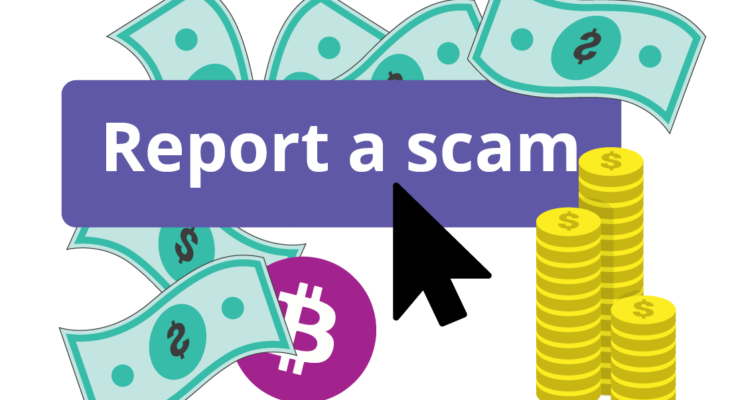Introduction: The cryptocurrency market has witnessed exponential growth in recent years, attracting not only legitimate investors but also fraudulent actors looking to exploit the decentralized nature of digital currencies. As the popularity of cryptocurrencies continues to rise, so do the instances of report crypto scam. Recognizing and reporting these scams is vital to safeguarding your investments and the broader cryptocurrency community.
In this guest post, we will explore the various types of crypto scams, how to spot them, and the steps you can take to report such fraudulent activities. Being informed and proactive is the first line of defense against crypto scams.
Common Types of Crypto Scams:
- Phishing Scams: Phishing scams involve fraudulent websites or emails that impersonate legitimate cryptocurrency exchanges, wallets, or services. Unsuspecting users are lured into entering their private keys or sensitive information, allowing scammers to gain unauthorized access to their crypto holdings.
- Ponzi Schemes: In Ponzi schemes, scam artists promise high returns on investments but pay earlier investors with the capital of new investors. These report crypto scams are unsustainable and eventually collapse, causing significant losses to participants.
- Fake ICOs: Initial Coin Offerings (ICOs) are fundraising events where new cryptocurrencies are sold to the public. Scammers create fake ICOs, collect funds, and disappear, leaving investors with worthless tokens.
- Fake Exchanges: Fraudulent exchanges claim to offer trading services but disappear once they have collected funds from users. These fake exchanges often have convincing websites and marketing campaigns.
- Investment Clubs: Some scammers create investment clubs or social groups that promise lucrative returns on crypto investments. Participants are asked to contribute funds, which are never invested as promised.
Spotting Crypto Scams:
To protect your investments, it’s crucial to recognize the signs of potential crypto scams:
- Too Good to Be True Returns: If an investment opportunity promises unrealistically high returns with little to no risk, it’s likely a scam.
- Lack of Transparency: Legitimate projects and companies provide detailed information about their team, technology, and roadmap. If this information is missing or seems suspicious, it’s a red flag.
- Pressure to Act Quickly: Scammers often create a sense of urgency, pressuring individuals to make quick decisions. Take your time to research and verify the legitimacy of an investment.
- Unsolicited Messages: Be cautious of unsolicited messages from strangers on social media or email. Verify the identity of the sender and the legitimacy of the offer.
Reporting Crypto Scams:
If you encounter or suspect a crypto scam, taking prompt action is essential:
- Contact Law Enforcement: Report the scam to your local law enforcement agency. They can initiate investigations and take legal action against the scammers.
- Submit a Complaint to Regulators: Depending on your jurisdiction, you may need to report the scam to financial regulators or consumer protection agencies.
- Use Online Reporting Tools: Many countries have online platforms and websites where you can report crypto scams. These platforms often work in collaboration with law enforcement.
- Warn Others: Share your experience and knowledge about the scam on social media, forums, or community groups to warn others and prevent them from falling victim.
- Block and Report: Block the scammer and report their account on the platform where you encountered them. This can help prevent further contact.
Conclusion:
Protecting your investments in the cryptocurrency market is of paramount importance. Crypto scams can take various forms, and they prey on both novice and experienced investors. By staying informed, recognizing the warning signs, and promptly reporting suspicious activities, you not only protect yourself but also contribute to the collective effort to make the crypto space safer for everyone. Remember, vigilance and education are your best allies in the fight against report crypto scam.

